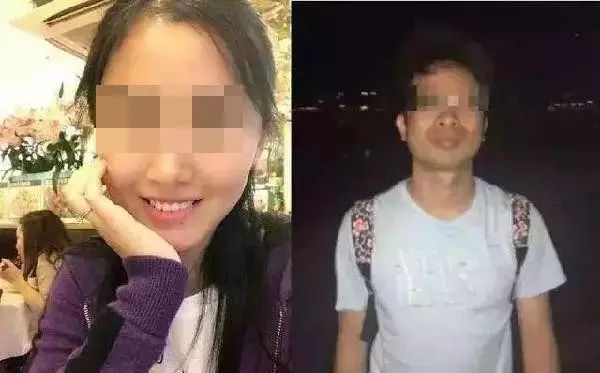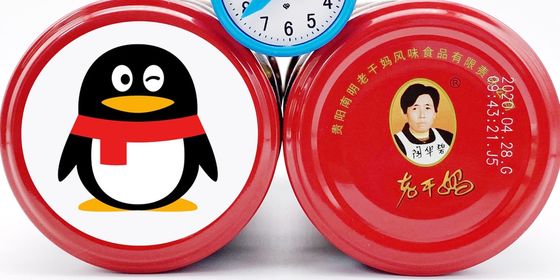Death of IT entrepreneur’s death frays public’s trust in strangers
The sensational suicide of a Beijing IT entrepreneur has shaken China’s notoriously shaky public trust further, coming just weeks after the controversial death of a pregnant woman in Shaanxi, who allegedly killed herself following systemic failures by a top hospital.
Su Xiangmao, the founder of international calling app WePhone, leapt to his death from a Beijing building in the early morning of September 7. His suicide note, posted to Google+ the previous evening, alleged repeated harassment by his wife, Zhai, who had threatened to report him for tax evasion and illicit business practices unless he gave her the rights to a property in Hainan province, and an additional 10 million RMB as part of their divorce settlement.

Zhai and Su (Guancha.cn)
Chinese media and indignant netizens have since blamed Su’s death on everything from the programmer’s social inexperience, to women’s rights, materialism, “stranger danger,” and, unsurprisingly, the moral decline of society.
One surprise player caught in the fallout of this tragedy is matchmaking service Jiayuan.com, through which Su and Zhai met in March this year. Jianyuan’s parent company, Baihe.com, saw the price of its shares fall nearly 50 percent on Wednesday. According to The Paper, to date, Jiayuan has been cited in a total 1,329 court cases nationwide, and scams are commonplace on the platform, some of whose users have criminal records.
The company’s official response to the tragedy merely promised to cooperate with the official investigation, and that both Su and Zhai were verified users of the site.
But as in the case of Wei Zexi, a college student who died last year after turning to fake cancer treatments recommended by search engine Baidu’s sponsored results, corporate deflections are wearing thin on the public. Many have alleged that Jiayuan is, indeed, responsible because both users had VIP memberships—which can cost tens of thousands of RMB—with the expectation their matches are vetted by the site.
“Everyone expects free services to be full of scammers, so they turn to their VIP service,” one Jiayuan user told The Paper. There’s now the sense that the service itself was scamming on the public’s anxiety toward strangers: In the 2015 Chinese General Social Survey by the Chinese Academy of Social Sciences, only around 5.6 percent said they trust strangers.
Legal commentators have been cagey about assigning blame to the site. Zhai’s alleged sins—which Su said also includes compulsive lying, and hiding a previous marriage from both him and the site—are as yet unproven. Some suggest she may be a career scammer working with a gang; others argue this was a one-time, private instance of blackmail; both are still illegal.
Public sentiment had also briefly turned against Su the day after his death, following allegations that his company offered illegal VPN services and that he suffered from Hepatitis B, unbeknownst to his wife and other women on the site; the furor dampened after Su’s family stated that he was simply a HBV carrier, and that his wife knew of the fact.
Investigations by The Paper, Beijing News, and the Legal Daily have now unearthed previous criminal cases citing Jiayuan and other dating sites, as well as a class action suit being contemplated against Jiayuan itself.
At issue for Jiayuan is the worthiness of its VIP system. The “credit score” provided by Jiayuan’s VIP service only monitors the “completeness” of a user’s profile and their behavior within the site—not necessarily, as many believe, their identity and trustworthiness out in the real world. With both China’s government and the private sector now piloting various “social credit schemes” that would assign individuals’ online and offline behavior a comprehensive credit score—a move that many segment believe necessary in China’s fractured public trust—Su’s experience and the vulnerability it exposes in social networking may buoy the notion that greater coordination is needed between individual’s online and offline identities.
For the moment, the rules of the jungle seem to have informed both Su’s decision and its aftermath. In the days after the suicide, users who logged into his WePhone app saw an error message stating, “Due to our corporate representative being driven to his death by poisonous ex-wife…WePhone has ceased operation.”

Su’s death and accusations against his wife were announced to the app’s users (Sohu)
The middle of this corporate message contains the wife, Zhai’s, full name, phone number, workplace address, as did Su’s suicide note. This expedited matters for China’s notorious “human flesh search engine,” internet vigilantes who try to punish perceived wrongdoers outside the justice system by exposing them online. These web sleuths quickly dug up Zhai’s photos and personal information, such as her hometown and education history, forcing statements from her family members and acquaintances, even while police investigations are still ongoing.
Moreover, on September 9, Su’s family released chat records in which Zhai is shown to threaten Su with her official connections, namely a “high-ranking” uncle in the police department who would supposedly have been able to ensure the WePhone app was taken off the market (the uncle has since come forward to state he is simply a police instructor, with no such power). Quite apart from any oversight by the dating site or Su’s own bad luck, netizens have pointed out that Su’s decision to commit suicide, rather than face any official scrutiny, indicates his (and society’s) lack of faith in fair treatment under the law. Guilty of not, Su feared retribution from officials who rule with law, not under it.
To quell further rumors about the tragedy, Su’s older brother released a message, along with the chat records, clarifying certain details, and asking vigilantes to stop stoking the fire for the sake of both families—”We trust the government, trust the legal system, trust in social justice,” he wrote. But even then he was quick to add a warning about opportunists that have started exploiting the tragedy and using his brother’s name to collect donations for a fund: “Our family is not soliciting any donations…so please be careful. In the era we live in, it’s hard to separate wheat from the chaff.”












